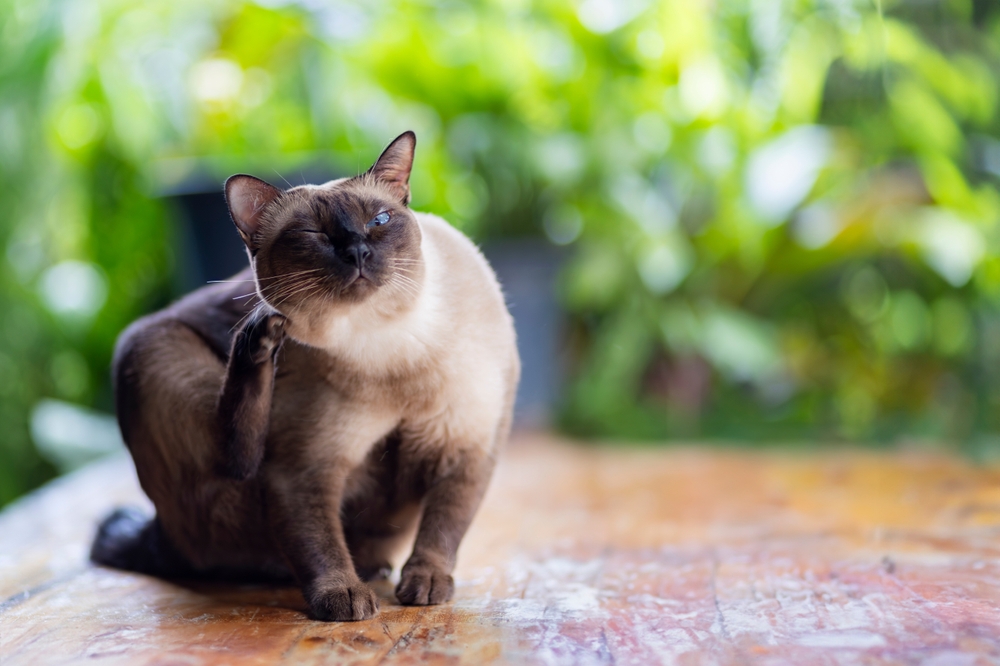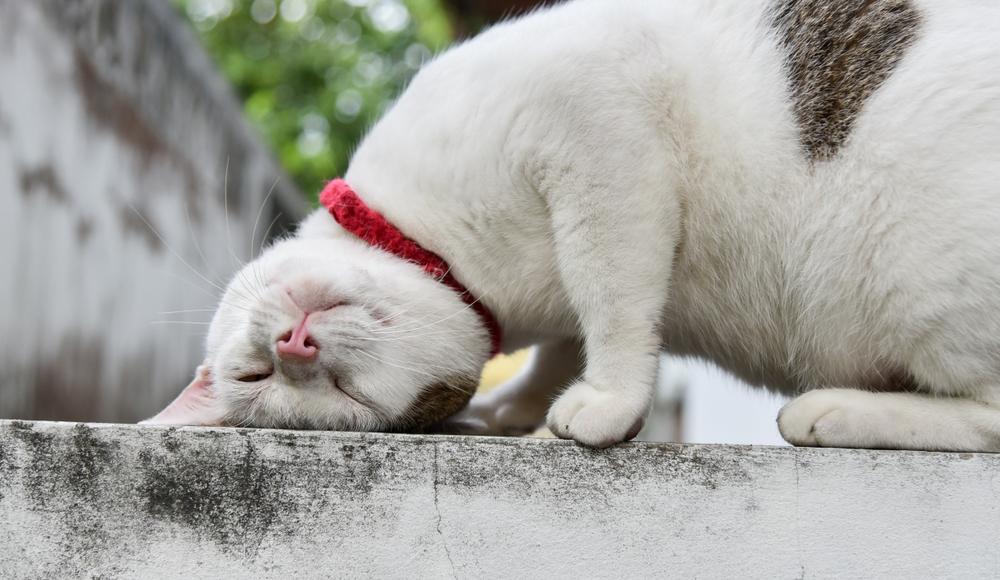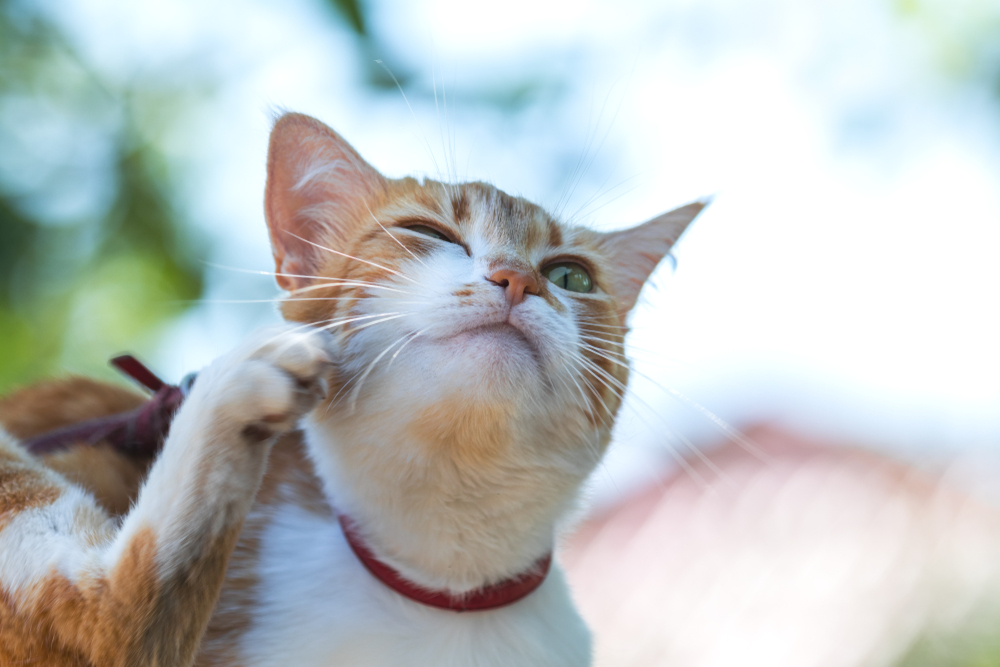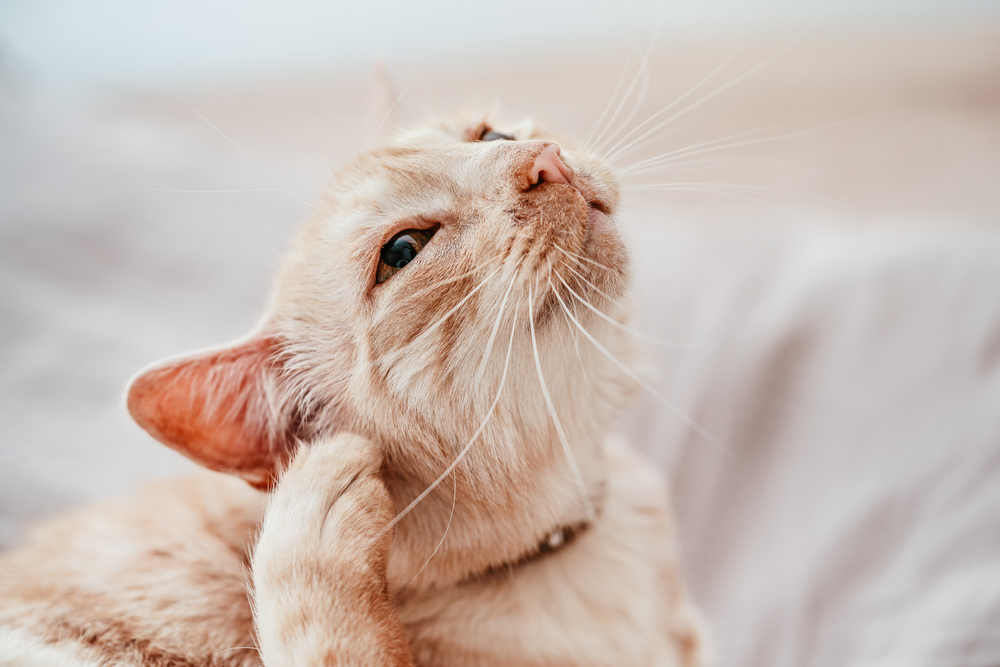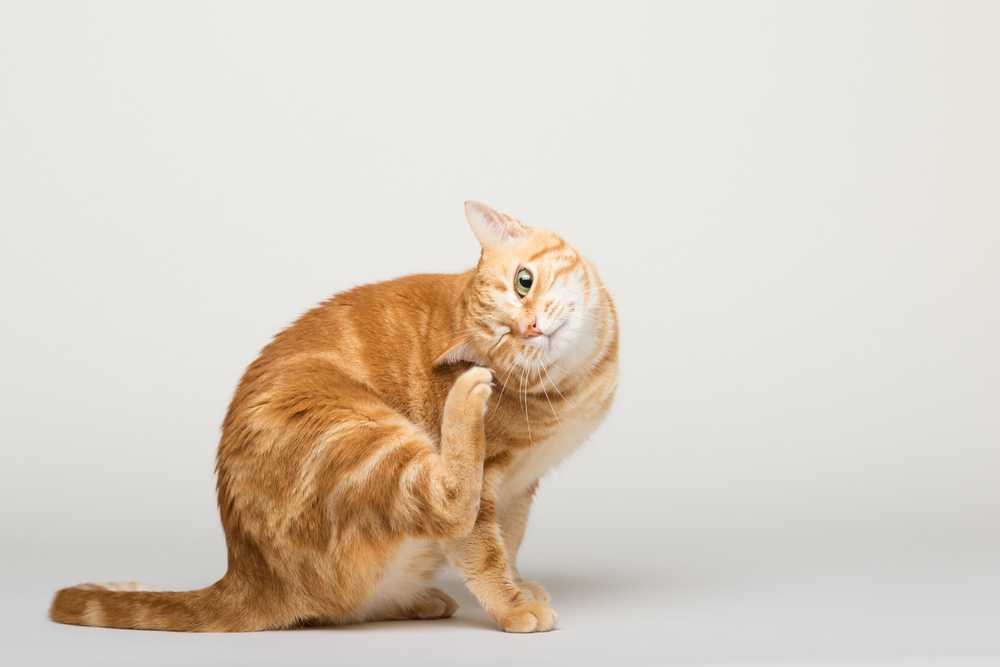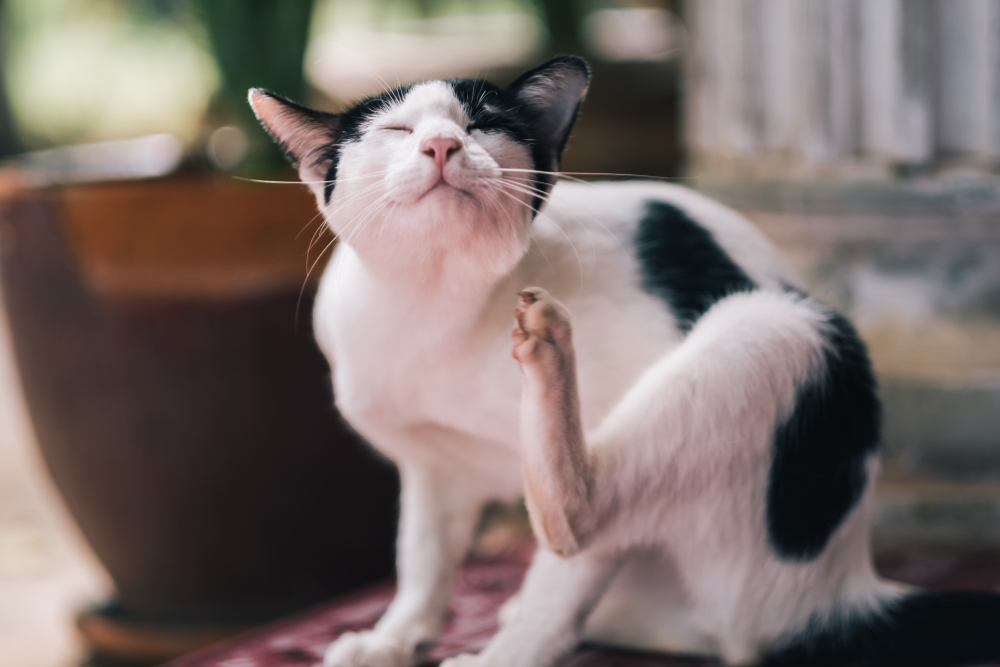📖 Table of Content:
Our feline friends do a lot of quirky things that every cat parent absolutely adores. You would agree, however, that a cat scratching her face until it bleeds is definitely not cute. It’s distressing for both you and your kitty, and you want nothing more than to help her find relief.
Excessive scratching can be a sign of an underlying issue that you aren’t aware of. Unfortunately, if this problem isn’t addressed on time, your furbaby will develop wounds that could easily get infected, which would create even bigger health problems for her.
Our feline companions are big clean freaks, and they have strong grooming instincts. Their natural urge to clean themselves will never hurt them, however. When their face itches, they’ll use their sharp claws to try and stop it, and bleeding is inevitable.
Because she’s at risk of infections this way, it’s crucial that you help your fluff as soon as possible. When you notice her excessive scratching, you should take her to the vet so she can get a proper check-up.
Before you do that, however, it’s good that you’ve decided to do some research. Today, we’ll go over all the possible reasons why your cat is scratching her face until it bleeds, and what are some things you can do to help her.
Why is my cat scratching her face until it bleeds?
Constant itching isn’t only super annoying, but it can also be very painful for your dear fluff. It causes wounds and painful sensations that could make her condition even worse.
Instead of finding temporary solutions to this itching situation, it’s important that you find the possible cause first. It will help you provide your feline companion with proper treatment that will help reduce her pain and irritation. Here are some potential causes of excessive itching.
1. Parasites
Let’s talk about the notorious troublemakers when it comes to itching and your cat scratching her face until it bleeds – parasites. Especially those pesky fleas we all dread. Let me tell you, they can be a real pain. The worst part is that they can be really hard to spot, especially if your fluff has a thick coat.
Fleas absolutely love cozy, warm environments like our heated homes. I mean, why wouldn’t they? It’s no wonder they find our feline friends to be perfect hosts.
Lice infestation, although it’s not very common, can also make your kitty scratch and lose her hair. On top of that, when it comes to cats that have certain immune system disorders, such as feline immunodeficiency virus (FIV), there’s a chance she may be dealing with scabies mite infestation.
So, what are the signs you should look for? Well, get ready to feel your skin itch, because sometimes you may actually see those tiny bugs crawling around, which is a pretty clear indication. Yikes!
Other times, they can be a bit more sneaky. In those cases, keep an eye out for red and sore skin, patchy baldness, constant scratching, and little black specks in your fluff’s fur.
If you notice any of these signs, grab a fine-toothed metal comb and gently go with it through your cat’s coat, several times a day. This will help remove any fleas or other parasites that may be causing the itching. After you’re done, put the comb in warm water with detergent to get rid of the fleas completely.
2. Allergies
If it’s not parasites, there’s a high chance your cat may be dealing with allergies or hypersensitivities. If you notice your cat scratching her face until it bleeds, it could be an allergic reaction to certain foods or ingredients.
In cats, there are two common types of allergies: food and atopy. The latter is an allergy to airborne substances. When it comes to food allergies, itching around the head, neck, ears, and face is a typical symptom, although there may be other signs, too.
Changing the brand of cat food you use may not make much of a difference because the ingredients are likely to be similar to other brands, as well. It’s important you talk to the vet for an alternative diet plan.
They’ll provide you with ingredients and may suggest you feed your fluff with delicious homemade meals for a while. However, if she’s not allergic to food, there’s a high chance she may be dealing with atopy.
The most common causes of allergic reactions in cats are pollen and house dust. If your feline friend happens to be allergic to any of these, she may experience some symptoms such as itchy skin, redness, and sores on her face.
Your vet may recommend getting your fluff allergy tested, which can help identify the allergens your kitty is reacting to. It’s a great step towards finding the right treatment plan.
Dealing with atopy can be a long-term commitment for both you and your furry friend. It requires ongoing medication and maintenance to manage the symptoms. Unfortunately, even meds like antihistamines can only provide limited relief.
3. Mites
Vets usually talk about the risks of ear inflammation or otitis externa caused by ear mites. These little troublemakers can be quite adventurous and may even explore beyond the ears, investigating the skin on the head, face, and neck.
When this happens, your poor fluff can develop itchy skin conditions in those areas, which can cause them to scratch and itch their face so vigorously that it ends up bleeding. Sounds familiar?
This annoying itchiness can also be caused by harvest mites. These tiny orange dots are often found in skin folds, like pockets of the ears. Some cat breeds are more prone to these mites, leading to some pretty distressing skin issues.
So, what can you do to help your dear feline friend? If you notice your cat displaying any of the symptoms, you can try giving her oral, topical, or systemic medications such as ivermectin.
We highly recommend thoroughly cleaning the area, and applying some baby oil to the part inhabited by mites to smother them. Of course, before you give any meds to your fluff, it’s crucial that you talk to the vet first.
4. Anxiety and compulsive disorder
I know, I know… The last thing you’d want to hear is that your fluff may be in distress. Unfortunately, excessive scratching can be a result of anxiety.
There are many reasons why this could be happening. For example, if you’ve recently moved to a new location or made any big changes in your life, it can cause your kitty to feel anxious. Another possibility is that your cat spends most of her time indoors, and she may be bored due to a lack of activity.
Sometimes, however, this excessive scratching can be a result of a compulsive disorder linked to an underlying disease, whether it’s a neurological issue or a dermatological disorder.
To address this problem, it’s crucial that you rule out any potential medical conditions. To do this, take your kitty to the vet so she can be thoroughly examined. If there’s no medical condition, there are some things you can do to manage this behavior.
For example, establishing a routine and sticking to a consistent schedule for feeding, playing, and socializing can be really helpful for your anxious fluff. On top of that, use itch and pain relievers to give your cat some relief.
Your poor fluff probably hates unpredictable events, so try to eliminate them. This includes separating your cat from guests, sudden changes of plans, or interactions with strangers.
5. Insect bites
Insect bites are another pretty common reason behind your cat scratching her face. Although it may sound harmless, these bites can cause some pretty intense symptoms, such as itchy and irritated skin with swelling and pain.
As much as we hate mosquito bites, they’re just as annoying to our feline friends, too. These dreaded insects will find the hairless part of your fluff’s body, such as her nose or ears, and it will become their primary target.
If this happens, don’t freak out, it’s not the end of the world. One option is to use over-the-counter steroids, which can help reduce inflammation and provide relief. If there’s a stinger in the affected area, gently scrape it and help it come out.
Another thing that could help is applying a cold pack of ice or peas to the itchy area, which will help reduce the excessive itching your fluff may be experiencing. Look for any signs of allergic reactions, and consult a vet if you notice them.
6. Dry skin
If the environment your cat spends time in is dry, she may get itchy skin. Excessive licking and grooming may also make her skin dry. If you suspect your cat may be experiencing dry skin, you can eliminate the potential causes such as allergies and cold dry air.
A humidifier could be a lifesaver in these situations, as it will add some moisture to the air in your home. Also, you can try increasing the amount of protein and omega-3 fatty acids in your fluff’s diet.
